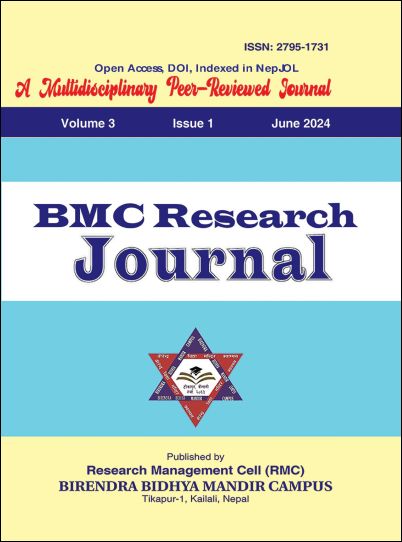Rebel Body against the Caste System in Ahuti's "Gahungoro Africa"
DOI:
https://doi.org/10.3126/bmcrj.v3i1.69173Keywords:
Rebel Body, Body Politics, Dalit, Social Justice, Caste SystemAbstract
Applying body politics, this research paper attempts to explore the rebel body against the caste system in Ahuti's "Gahungoro Africa". First published in Mulyankan monthly magazine in 2051, the poem "Gahungoro Africa" satirically airs its voice against those oppressors who exploit Dalit laborers in different ways. The poet raises the issue of Dalits considering them touched or untouched during the caste system. The researcher makes a strong argument that the so-called low-caste Dalit people should be given the right to justice and freedom at any cost by abolishing caste discrimination entirely. The speaker of this poem is a leading figure, the rebel body as well as the voice of downtrodden, underprivileged, and working-class Dalit laborers against the so-called high caste. The paper shows the conflict between the so-called high caste; the exploiter, landlords, and touchable Vedic body, and the so-called low caste; the exploited, slaves, and untouchable non-Vedic body, especially the Dalit bodies who are declared 'untouchable' by the socially construct Hindu caste system. The poem carries out a very sarcastic, challenging, and angry tone toward the so-called high caste and its agents.
Downloads
Downloads
Published
How to Cite
Issue
Section
License
Copyright (c) 2024 The Author(s)

This work is licensed under a Creative Commons Attribution-NonCommercial 4.0 International License.
This license enables reusers to distribute, remix, adapt, and build upon the material in any medium or format for noncommercial purposes only, and only so long as attribution is given to the creator.




